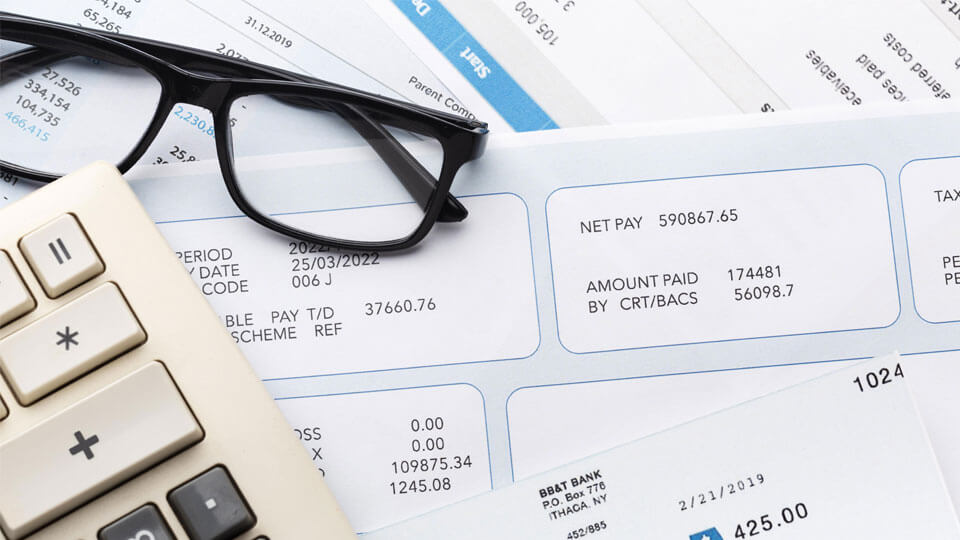If you are one of millions of Americans with student loans, you may wonder how you will ever pay them off. Fortunately, there are many strategies to paying off student loans faster. If you need help with refinancing your student loans, talk to your lender about interest rates and fees for student loans today. Smart Lending can help you determine is consolidating and paying off student loans in a personal loan makes sense for you in 2026.
#1 Pay As Soon As Possible
While you do not need to make student loan payments when you are in school, you will pay your loans off faster if you do. Remember, interest grows when you delay or lower your payments, so the sooner you start paying, the less interest you will pay.
#2 Refinance
If you have a student loan with a higher interest rate, refinancing the loan could save you a lot in interest payments. However, this option may not be open to you right after you graduate; you may need to build a strong credit history with regular loan payments, unless you have a co-signer with a strong credit score. Lenders also may require you to have a solid job and income before you refinance.
Before you refinance, check with several lenders to see which offers the best interest rates. Rely on an online student loan refinance calculator to decide if the loan being offered is a good fit.
#3 Pay More Than The Minimum
Paying just a few dollars extra per month can lower the interest you pay and reduce what your loan costs over the years. Keep making monthly payments even when nothing is due next month and you will pay it off faster. Ask your loan servicer if any extra payment you make go towards the loan with the highest rate.
Suppose you have a $25,000 student loan with a 7% interest rate. If it is a 10-year repayment plan, your loan payment would be around $290 a month. But if you pay $400 per month instead, you can pay off the loan in a bit more than seven years. That is a lot of interest saved.
#4 Use Automatic Debit
If you have your loan automatically debited from your bank account, your servicer will give you a lower rate in some cases. You also ensure that your loan is paid on time every month and there will be no late fees.
#5 Limit Debt With A Job
A fantastic way to lower your student debt is to not take it out in the first place. Consider taking a part-time job in college and reducing what you borrow. Federal law allows you to earn up to $7,000 per year without affecting the ability to get a student loan.
Check your school’s career center to see if they will hire you for an on-campus job. On-campus employers can be more understanding of hectic class schedules and may be more flexible. There also are more online jobs available today than ever, so you may be able to earn extra money on the side and pay for tuition without loans.
#6 Try To Find Loan Forgiveness Programs
There are many ways that some students can have their student loans forgiven. The federal and state governments offer many loan forgiveness and repayment programs for public servants, teachers, members of the Armed Forces, and more. Here are some of the current loan forgiveness programs offered through the US government:
- Student loan forgiveness program: The president announced a plan this year to forgive up to $20,000 in federal student loans for those who qualify. Student loan forgiveness is only for people with an income of $125,000 or less, or $250,000 if you file jointly with your spouse.
- Public Service Student Loan Forgiveness: To be eligible for this program, you have to be employed on a full time basis in a public service job in a government or nonprofit agency and make at least 120 payments in your income-driven repayment plan. Getting approved for this program is difficult, so check the loan details closely.
- Income-driven repayment forgiveness: You also can have part of your loans forgiven if you chose an income-driven repayment plan. After you hit the repayment term of 20 or 25 years, the balance may be forgiven.
Learn more about loan forgiveness programs offered by FederalStudentAid.com.
#7 Use Tax Deductions
The US government offers a student loan interest deduction on federal taxes for the interest you paid on qualified student loans. You can deduct up to $2500 on your taxes per year, depending on your gross income. You can take this deduction for both federal and private loans. You also can claim the federal tax deduction if you are required to pay interest on a student loan and you file as not married filing separately.
There are many ways that you can pay off your student loans so you pay less in interest over time. Check with your lender today to find out if refinancing or another option will work for you.
When Taking Out an Unsecured Personal Loan to Pay Off Student Loans Makes Sense in 2026
Refinancing student loans with an unsecured personal loan is rarely the first choice, but in specific 2026 scenarios it can be a smart, even life-changing move. Here’s when it actually pencils out:
- Your Federal Loans Are Already on a Standard or Extended Plan (No Forgiveness Left) If you’ve been paying for 8–15 years and have no realistic path to Public Service Loan Forgiveness (PSLF) or income-driven repayment (IDR) cancellation, you’ve already forfeited federal protections. Trading a 6.8–8.5% federal rate for a 9–12% personal loan with a shorter term can still save thousands if the new rate + shorter payoff beats your current trajectory.
- Private Student Loans at 10%+ Fixed or Variable Rates Many 2015–2021 private loans are stuck at double-digit rates. With excellent credit (720+ FICO), top-tier lenders now offer 3-year to 7-year personal loans at 7.99–10.99%—often lower than your original private loan. Example: $40,000 at 11.9% private refinanced to 8.99% over 5 years saves ~$7,800 in interest.
- You Need a Faster Exit (5 Years or Less) Personal loans max out at 7 years (vs. 10–25 for student loans). If you’re aggressively attacking debt and can handle higher monthly payments ($600–$900 vs. $350–$450), the interest savings plus psychological win of being debt-free sooner often outweighs the loss of federal perks.
- You Have Strong Income and Credit, but No Co-Signer Release on Old Loans Some older private loans won’t release co-signers without refinancing. Swapping to an unsecured personal loan in your name alone can free parents or relatives while potentially lowering the rate.
- You’re Facing Variable Rate Spikes Older private loans tied to LIBOR/SOFR are climbing again. Locking a fixed personal loan rate eliminates that risk.
When It Still Doesn’t Make Sense Never do this if you’re pursuing PSLF, income-driven forgiveness, or need deferment/forbearance options. Also avoid if your credit is below ~680—rates jump to 18–36%, worse than most student loans.
Bottom line: In 2026, the move only makes sense for high-earning, high-credit borrowers with private loans or exhausted federal forgiveness paths who prioritize speed and certainty over flexibility. Run the numbers—many discover they can shave 3–8 years and $10k–$30k off their payoff timeline



